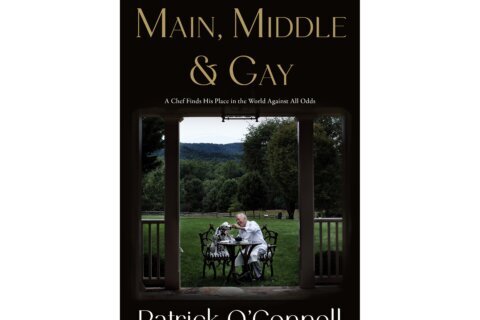“Unsolved Mysteries” became a staple of true-crime television from 1987-2010.
Last week, Netflix debuted the first six episodes of its much-anticipated reboot.
Sadly, late great host Robert Stack died in 2003, so that iconic element is obviously missing. Instead, there’s a brand new approach of no host and no narrator.
This is a smart move, as there was no way to possibly replace Stack, while letting the actual voices of the cases tell their stories and how their lives have been changed.
More importantly, the show keeps the same creepy piano theme music and fascinating crime tales to create a binge-worthy series that sheds new light on these controversial cases and, with the wide exposure of Netflix, might actually help to solve them.
Here’s a breakdown of all six episodes:
Episode 1: “Mystery on the Rooftop”
Directed by Marcus A. Clarke, the debut episode hits close to home with the case of a man who went missing in Baltimore, Maryland, in 2006. We’re introduced to Rey Rivera, a 32-year-old videographer and aspiring screenwriter who moved to Baltimore with his wife to work for his best friend’s financial company, Stansberry and Associates.
While out of town on business, his wife receives a call from her tenant saying that Rivera received a phone call that caused him to rush out of the house in his flip flops. Reporting him missing, his wife and friends go looking for him and find clues leading to a hole in the roof of the Belvedere Hotel, where his lifeless body lies in a conference room.
This is where the episode gets even wilder, as the Baltimore Police Department rules his death a likely suicide, but skeptics point to his unharmed cellphone and eyeglasses as proof of foul play. Did he jump or was he pushed? Better yet, why was he pushed? Did he stumble upon financial dealings that forced him to become silenced?
Episode 2: “13 Minutes”
Directed by Jimmy Goldblum, the second episode is just as compelling but with a more bizarre, macabre conclusion. It follows the disappearance of 38-year-old Patrice Endres, who suddenly vanished from her hair salon in Cunning, Georgia, in 2004.
Eye witnesses claim seeing a blue sedan unusually parked outside the salon, while an apprehended serial killer claims responsibility before recanting his testimony. Whatever happened, the disappearance occurred in a 13-minute window of time, followed by a development in the case 600 days later.
To this day, Endres’ son, Pistol, blames her murder on his stepfather, Rob, who locked him out of the house the next day. As the final scenes show Rob reassembling her bones at the funeral parlor and talking to her ashes in his living room, it’s clear who the filmmaker thinks is the culprit — a chilling assertion.
Episode 3: “House of Terror”
Directed by Clay Jeter, the third episode explores the murders of the wealthy Dupont de Ligonnès family in Nantes, Loire-Atlantique, France in 2011. The filmmaker smartly sets up the seemingly perfect family before showing the family’s freaky, bloodless disappearance from their downtown home and the mailing of bizarre letters claiming witness protection.
After numerous trips to the home, police finally discover their bodies buried under the backyard porch, each buried with ritualistic religious tokens. However, one body is missing, that of the father, Xavier Dupont de Ligonnès, who apparently inherited his father’s rifle, took target practice and bought a silencer in the weeks preceding the massacre.
As Xavier is spotted on various CCTV security cameras at bank tellers and hotel parking lots, he disappears into the mountains of Southern France. Did he hop a train? Helicopter? Cargo ship? The possibilities are baffling.
Episode 4: “No Ride Home”
Directed by Marcus A. Clarke, the fourth episode chronicles a suspected hate crime poignant for our current political climate. It follows the story of African-American high school football player Alonzo Brooks, who went missing in La Cygne, Kansas, in 2004.
In a series of teary-eyed interviews, his former buddies describe bringing him to a party at a remote farmhouse an hour away from his home. The party apparently got out of hand with racial epithets toward Brooks, the only Black person there, but unfortunately all of his friends had left the party by that point, leaving their friend behind never to be seen again.
The next day, Brooks’ family finds his hat and boots scattered on the roadside and calls for a massive police search of the surrounding creek. A month later, when the search is called off, Brooks’ family discovers his body on the property, suspecting it was placed there after the fact. Will someone come forward with what they’ve heard from the town gossip?
Episode 5: “Berkshires UFO”
Directed by Marcus A. Clarke, the fifth episode is the outlier in that it explores the supernatural, feeling more like “The X-Files” or “Close Encounters” than a true-crime documentary. That’s not to say it’s any less compelling, as the numerous residents in Massachusetts recall their encounters with a UFO on Labor Day weekend in 1969.
Most extravagant is the story of Tommy Warner, who claims at age 10 he heard a voice at the window that drew him outside, only to be hit with a beam of light that held him motionless and spoke to his brain with mental telepathy for seven minutes. His grandmother claims to have seen the same thing a few miles north while driving home.
The sympathetic characters describe their hesitancy to share their tales out of fear of seeming cooky, but they find solace in other townspeople who claim to have experienced similar things that same night. This includes a family whose car stopped in its tracks under a bright light that rearranged the position that the family members were sitting in the car. Was it aliens? The truth is out there.
Episode 6: “Missing Witness”
Directed by Clay Jeter, the sixth and final episode is arguably the most heartbreaking of all in that it involves a family of little girls who never had a chance. Their mother, Sandy, was the female equivalent of a womanizer, the proverbial “black widow,” moving from husband to husband, brother to brother, bringing her five daughters with her.
When one of her husbands, Gary, goes missing at the family farm in Missouri, she allegedly tells the kids to keep quiet about the truth while her 21-year-old boyfriend Kris Klemp coincidentally moves in with them at the same time. Investigators are unable to find Gary’s body, so Gary’s brother secretly records Sandy’s daughter, Lena Chapin, seeking a confession.
However, the case takes another turn when Lena also goes missing, leaving behind her young son in her mother’s custody. Sandy claims Lena ran off with a guy somewhere in Florida, but her sisters suspect otherwise, thinking their mother whacked Lena to prevent her from testifying against her mother in a wrongful-death lawsuit against their stepfather.
Whew. If all that doesn’t leave your head spinning, I don’t know what will. The first six episodes were released as “Volume 1” of Season 16. Another batch of six episodes called “Volume 2” will reportedly arrive later this year, but no release date has been given.
If there’s any criticism, it’s the inherent lack of closure, but that’s to be expected from a show called “Unsolved Mysteries.” In each episode, the filmmaker makes it clear who he thinks is the culprit before turning it over to the audience to call tip lines and visit unsolved.com.
In the end, that’s the important part: the human element. These are real people with real pain and real grief. As gripping as the show is as true-crime television, never forget the lives who were lost and the loved ones who remain forever broken. Hopefully someone watching Netflix will see their stories and call in with clues to finally bring justice and peace for the families.








